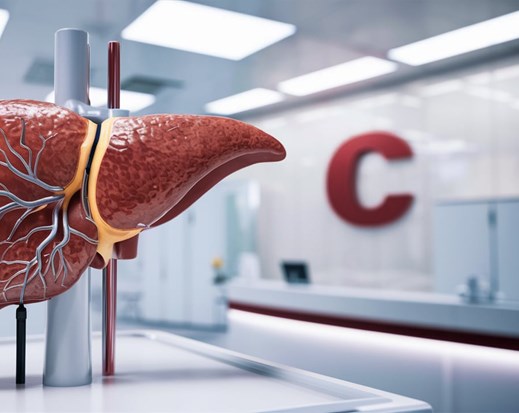



It is a viral infection that causes damage to the liver and results in Hepatomegaly and inflammation. Hepatitis C is transmitted through contact with Blood contaminated with the virus. This can occur through sharing the use of injections or unsafe medical procedures such as transfusions and unexamined blood products. The virus can cause both severe and chronic hepatitis. Antiviral drugs can cure more than 95% of people with hepatitis C infection, and there is currently no effective vaccine against hepatitis C.
Symptoms
Symptoms can include:
Bleeding and bruising
jaundice
The color of the urine has changed to dark
Storage of liquids in the stomach area, known as ascites
Swelling of the legs
Weight loss
Some people succeed in overcoming acute hepatitis C infection and some may suffer from the disease chronically and permanently.
Risk factors
If the Examination of liver results indicates abnormal results without obvious reason
Children born to mothers with hepatitis C
People living with HIV infection
People who do drugs by injection or inhalation
Pregnant during pregnancy
Healthcare workers dealing with blood and blood derivatives or having acupuncture
Dialysis patients
Husband or wife with hepatitis C infection
Complications
Liver fibrosis
Liver Cancer
Liver failure
Prevention
Make sure sterilizing instruments, the tools used in the body piercing, or tattooing
Use personal protectors when dealing with blood and blood derivatives and follow infection control standards
Avoid sharing personal tools with others such as razors, toothbrushes, scissors, etc
Cover body wounds carefully to avoid exposure to any contamination
If you are diagnosed with hepatitis C, consult a doctor specializing in liver disease. hepatitis C drugs can treat the virus in many people, reducing the risk of disease complications.
Read Also
Vitamin Deficiency B12 Causes and Treatment
What are the symptoms of the common cold? And ways of treating them